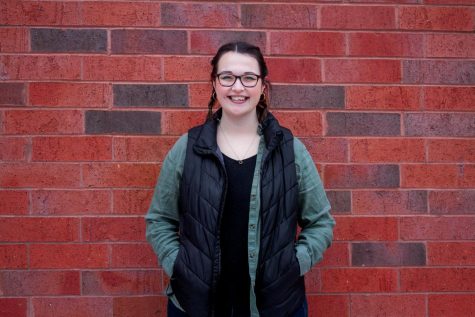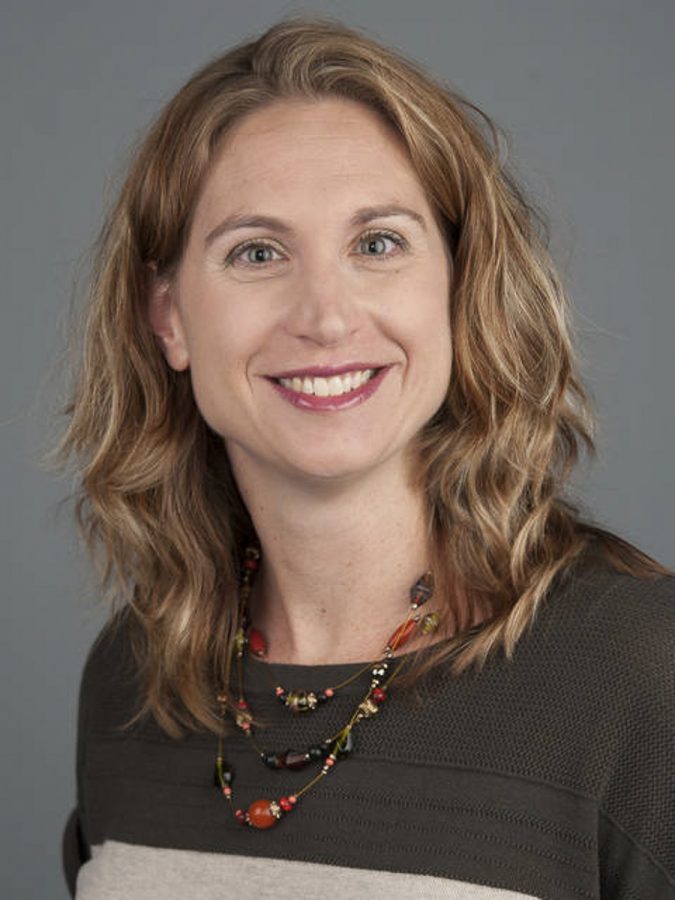UWEC’s SPARC earns $412,000 grant for upcoming research project
Director and students discuss what the grant means for SPARC
Photo by SUBMITTED
Jennifer Muehlenkamp is a professor of psychology and the creator and director of SPARC.
UW- Eau Claire’s Suicide Prevention & Awareness Research Collaborative received a $412,000 grant for new research, according to an article on UWEC’s website.
SPARC is an on-campus organization with a comprehensive set of programs and opportunities based on suicide research and prevention, Jennifer Muehlenkamp, professor of psychology and director of SPARC, said.
“Our main intention is educating others about suicide and non-suicidal self-injury, as well as study those who are willing, in order to better understand suicidology all for the sake of those affected by suicide,” Carley Owens, a third-year neuroscience student, said.
There are several parts of SPARC, Muehlenkamp said. There is the developing part where SPARC collaborates with other offices on campus to engage in outreach events and help students understand, improve and help others with suicidal thoughts.
Students can take a course as a part of SPARC with Muehlenkamp for credit to better understand suicide and suicide prevention, she said.
SPARC also collaborates with the university to create policies and protocols campus can use to assist students in distress and promote mental health awareness, Muehlenkamp said.
Currently, SPARC is working on a project looking at specific reasons for non-suicidal self-injury to better understand the risk and protective factors against suicide and self-injury.
Leading up to this project, Muehlenkamp said the SPARC team collaborates weekly to build a solid foundation for their research.
“We want to make sure everyone is well trained. It takes time because there’s a lot of technology and content to learn,” Muehlenkamp said. “We are starting to compile documents and procedures so they (students) are ready to invite participants into the research lab.”
The team was very excited when they were awarded the $412,000 grant, Muehlenkamp said. It makes it particularly exciting because the research is an innovative and different approach to suicide that most people have not done before.
“It’s pretty impressive for an undergrad institution with undergraduates doing the research to receive this kind of grant,” Muehlenkamp said. “It’s a lot of work and it is really rewarding.”
With the grant money, comes the ability to fund their research, Muehlenkamp said. The money supports the entirety of the research. It provides compensation for students, participants and provides funds to purchase equipment and software necessary to conduct the study.
The study will be conducted mostly online, Muehlenkamp said. Elements are done online through self-report surveys, but participants will occasionally have to come to the research lab located in Hibbard Humanities Hall.
Throughout her career, Muehlenkamp focused on understanding factors that affect self-harm and other non-suicidal behavior leading to suicidal thoughts.
“A lot of my work historically looks at how self-injury relates to suicide,” Muehlenkamp said. “There is a strong connection between self-injury and suicide – that’s what the current research is trying to answer.”
Not a lot of people go into this specific area to study, but there is a lot of potential to make a positive impact in the field, Muehlenkamp said.
The field is starting to prioritize understanding and preventing suicidal ideation, Owens said.
There’s still a lot to know about how to better treat suicidal behavior, Muehlenkamp said.
“The biggest thing is providing an excellent opportunity for students both to explore this area for professional reasons and studying suicide does not have to be a depressing process,” Muehlenkamp said. “What we are focusing on can actually help people and prevent suicide. There is a lot of positivity that goes along with that.”
There are opportunities like presenting data at national conferences and receiving Mayo Clinic honor awards, Owens said.
Students also gain experience for future careers, whether that be with just the research or the specific topic, McKenna Roessler, a first-year psychology student, said.
This research also helps the Blugold honors program to outline how many opportunities there actually are and show students how willing professors are to help you and be there for you, Isabel Yu, a first-year student, said.
Working with Muehlenkamp has been a lot about open communication and creating impacts on the lives of her students and those affected by her research, Owens said.
“Dr. Muehlenkamp and her research has saved countless lives and at SPARC, we are all ambitious to be part of something this big,” Owens said.
Lunderville can be reached at [email protected].

Amira Lunderville is a fourth-year English student. This is her second semester on The Spectator team. In her free time, she enjoys collecting more books than she needs, reading said books and binge-watching addicting T.V. shows.

